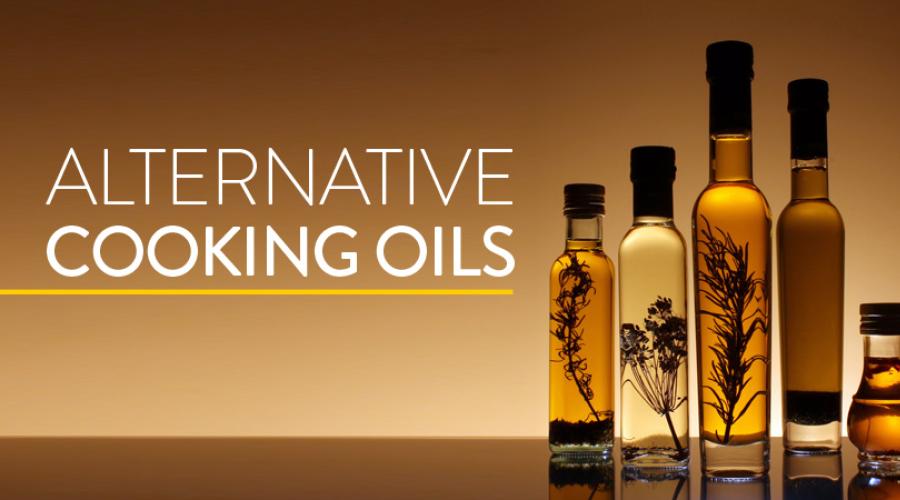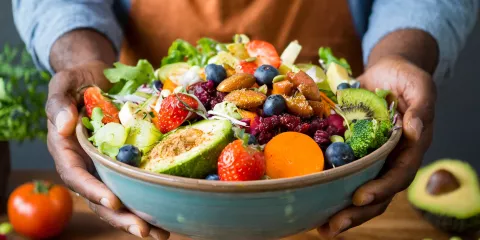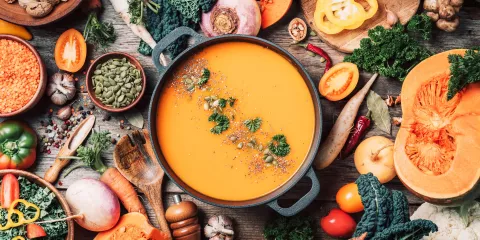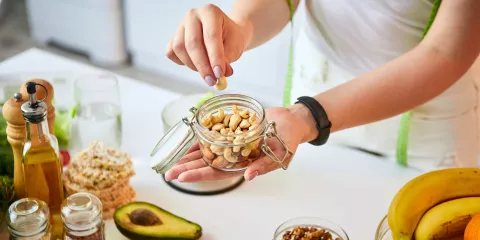
Healthy Cooking Oil Alternatives
Modern food preparation has done us at least as much harm as it has good. Non-organic farming, processed foods stuffed with chemical preservatives, juices rendered counterproductive by significant amounts of added sugars, and the big one: partially hydrogenated cooking oil. Partially hydrogenated cooking oil refers to vegetable oils that have been infused with hydrogen that acts as a kind of shortening. It gives commercially produced baked goods a desirable texture, it’s cheaper than animal fat, and it can be stored for a long time. It’s also terrible for our bodies.
We are living in an era that is questioning and challenging industrial agriculture and food production. Many of us now know to avoid trans fat. Several U.S. cities have already banned or restricted the use of partially hydrogenated oils and artificial trans fat. And, in 2015, the FDA released its determination that partially hydrogenated oils are no longer generally recognized as safe for food use, and provided a phase out period for manufacturers to eliminate use of trans fat, with a final effective date of December 22, 2023. Health researchers and consumers are also realizing that nature has provided us with many cooking oils that can actually do our bodies plenty of good – when used in moderation with a balanced diet. Let’s take a look at some of the best cooking oils you may have never heard of.
The Ground Rules
First, there are a couple things to know about oils.
Smoke point.
Much like water's boiling point, all oils have a smoke point. At a certain temperature, an oil will begin to smoke, which may produce the sort of free radicals that can damage cells. Oil can also catch on fire at its smoke point. Generally, the higher an oil's smoke point, the better that oil is for high-heat cooking. Some plant oils—like walnut oil—should not be used to cook with because they are best served cold.
Fat.
Oil is inherently fatty, but we need not be as concerned about that as you might think.Grapeseed oil, for example, has 14 grams of fat per tablespoon, but more than 90 percent of this is unsaturated fat – namely, polyunsaturated and monounsaturated fat. Check your labels.
Organic.
Pay attention to the organic label and look for the USDA organic seal. This can help ensure that the product is not tainted by harmful pesticide residues.
The Oils
Olive oil – choose “Extra Virgin” – is one of the most popular and best options, and works great as a cooking oil, although it should not be used for high heat cooking. However, experimenting with other oils can give your cooking some different flavors and may provide other health benefits. Some alternative oils you might consider trying are:
- Pumpkin seed oil
- Flax seed oil
- Ghee oil (from butter)
- Grapeseed oil
- Hemp oil
- Sesame oil
- Walnut oil
- Safflower oil
- Canola oil
- Flax oil
- Avocado oil
- Peanut oil
- Apricot kernel oil
The Benefits of Cooking Oils
Heart Health
Used as part of a balanced diet, many plant-based oils have properties that can support your heart health, including by providing omega fatty acids.
Canola tends to have the least saturated fat of all cooking oils, but be sure to look for organic canola oil!
Flaxseed oil is full of omega-6 and omega-9 fatty acids.
Sesame oil may help lower blood pressure and is so flavorful you don’t need very much of it.
Ghee, a staple of Indian cooking, is clarified butter and is best used in moderation and for people who are not trying to lose weight.
Safflower oil is available in two types: one for cooking at high heat (high-oleic) and one that can be used at lower heat applications or not heated. The label on the bottle should tell you which is which.
Antioxidants
Antioxidants can help prevent damage caused by free radicals and oxidation. Here’s a short list of key antioxidants supplied by some oils:
Walnut oil contains ellagic acid.
Sesame oil contains phytic acid.
Olive oil contains phenolic acids and other flavonoids.
Hemp seed oil is full of omega-3 fatty acids.
Best Served Cold
The following oils are best used cold and, if you want to explore new options, make a perfect salad dressing:
Olive oil adds rich flavor to salads, especially when mixed with herbs and some balsamic vinegar
Hemp seed oil has a nutty flavor and should be used cold
Safflower oil is mild and delicious in salad dressings
Sesame oil goes great with Asian salads
Walnut oil should only be used cold because it turns very bitter when heated.
Learn More
Have some fun experimenting in the kitchen while you cut out partially hydrogenated oil and give yourself some additional nutritional benefits. Here's a list of further reading about great alternative oils:
- Today Food. Beyond the olive. https://www.today.com/food/best-healthy-oils-cooking-salad-dressings-more-t126532
- Huffington Post. https://www.huffpost.com/archive/ca/entry/2012/06/05/oil-health-benefits-_n_1563407.html?utm_hp_ref=ca-summer-entertaining&ncid=other_homepage_tiwdkz83gze&utm_campaign=mw_entry_recirc
- MIT. Optimizing Your Diet. https://www.mitathletics.com/landing/index
References
- Mayo Clinic. Trans fat is double trouble for your heart health. https://www.mayoclinic.org/diseases-conditions/high-blood-cholesterol/in-depth/trans-fat/art-20046114












